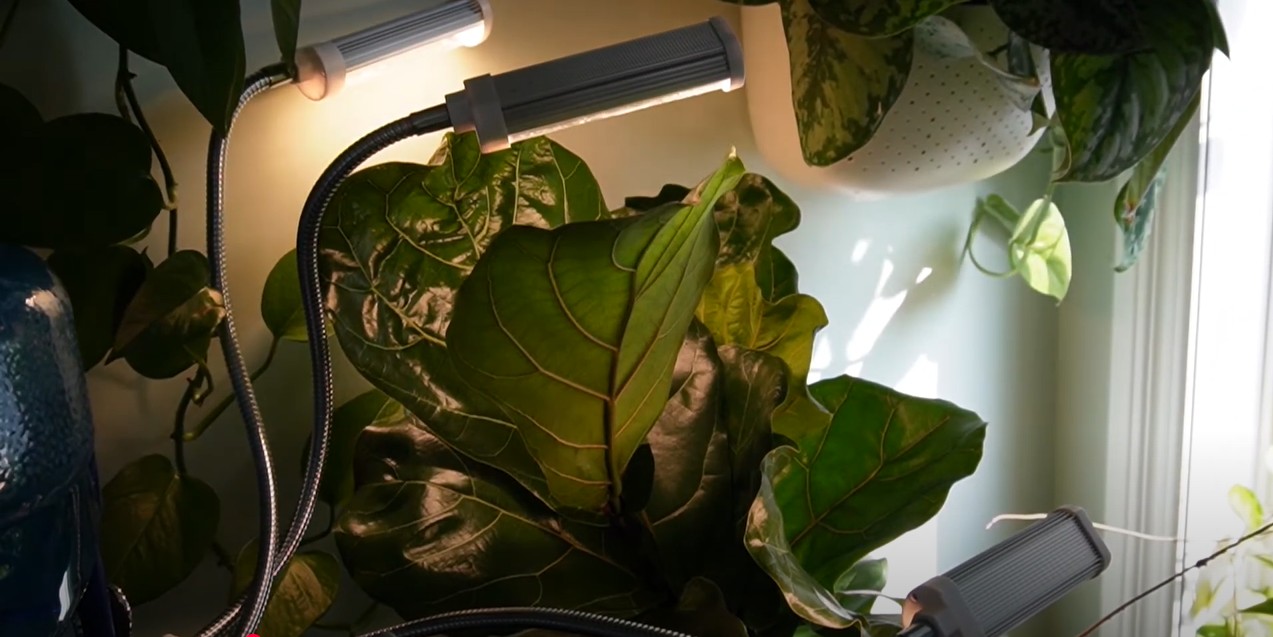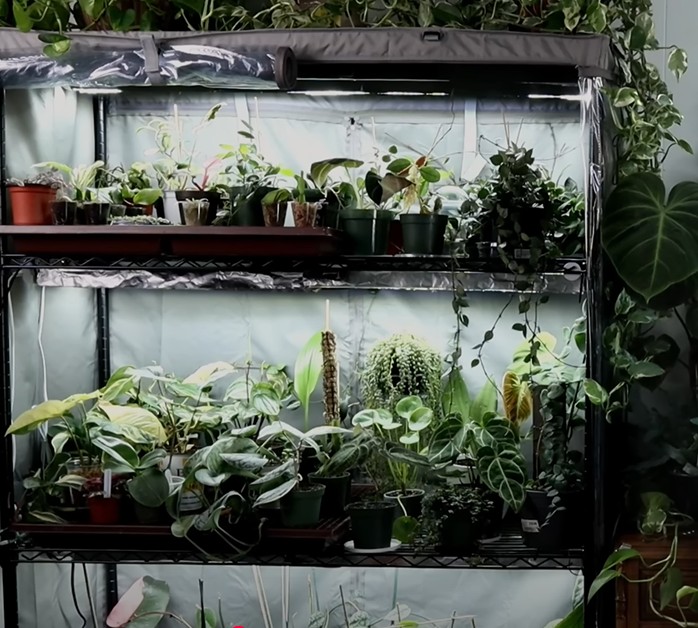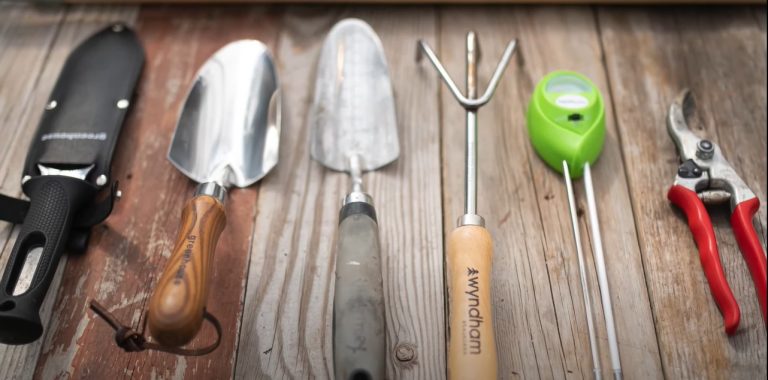Benefits of LED Grow Lights for Indoor Plant Growth
 Consider making the switch to LED grow lights. You’re in good company! As a home gardener or commercial grower, LED grow lights have transformed indoor plant growth. In contrast to conventional lighting, LED grow lights provide efficiency, longevity, and enhanced control over plant development.
Consider making the switch to LED grow lights. You’re in good company! As a home gardener or commercial grower, LED grow lights have transformed indoor plant growth. In contrast to conventional lighting, LED grow lights provide efficiency, longevity, and enhanced control over plant development.
In this detailed and informative guide, we will discuss in great detail the top 10 benefits of utilizing LED grow lights, along with the significant ways in which they can completely transform and enhance your indoor gardening experience. So, let us begin and find out all the advantages!
Why Use LED Grow Lights?
LED grow lights have increased in popularity among both amateur and professional gardeners simply because of their exceptional energy efficiency, remarkable long lifespan, and their capacity to deliver optimal lighting conditions that are needed for healthy plant growth. Conventional grow lights, such as the following types – HPS (High-Pressure Sodium) and fluorescent bulbs, though they may actually be good enough for certain applications, do have some disadvantages in that they consume more power, produce too much heat that is damaging to plants, and must be replaced rather frequently that is costly and inconvenient to users.
Benefits of LED Grow Lights:
- Reduced energy use.
- An increased life expectancy
- Adjustable light spectrum
- Negligible heat is generated or radiated.
- Environment-friendly advantages
Here, let’s explore and discuss at length the numerous significant benefits provided by LED grow lights.
 10 Key Benefits of LED Grow Lights
10 Key Benefits of LED Grow Lights
Energy Efficiency
One of the greatest advantages of LED grow lights is that they are energy efficient. LEDs use up to 75% less energy than traditional HPS or fluorescent lights. This means:
- Save on electricity bills
- Minimum effect on the environment
- More savings in the long run
LEDs are actually able to transfer a much higher percentage of electricity into usable light, which means that plants are able to receive the precise amount of lighting that they require without having to waste any excess energy in the process.
Long Lifespan
Unlike standard bulbs, LED grow lights don’t have such a limited life. While HPS and fluorescent bulbs need to be replaced after 10,000–15,000 hours, LED bulbs can live for 50,000+ hours of life. That’s up to 5–10 years of continuous use!
This concept of longevity implies that:
- Less replacements.
- Reduced maintenance expenses.
- Enhanced regularity of plant growth
Full-Spectrum Light for Improved Growth
The plants develop and grow nicely under the favorable heat and light of natural sunlight, while LED grow lights have been developed to effectively mimic the full spectrum that is offered by sunlight. Unlike the old grow lights that would only give off blue or red wavelengths of light, the new LED lights have gone a step further by having adjustable spectrums. This suits the plants at varying points of their development phases, giving them the appropriate light for healthy development throughout their lifespan.
- During the Seedling Stage, blue light plays a critical role in encouraging healthy and strong root development in plants.
- Vegetative Stage – A mix of blue and red promotes leafy growth
- Flowering Stage – Red and far-red light trigger blooms and fruiting
Reduction in Heat Emission Equals Healthier and Better-Growing Plants
Conventional grow lights are well-known to produce a lot of heat, which results in the burning of leaves on the plants and a general increase in temperatures within the room. This is usually a scenario that demands additional cooling systems be put in place to create an appropriate climate for the plants, resulting in increased energy bills.
Alternatively, LED grow lights are another solution that can be considered for indoor plants.
- Produce a small amount of heat.
- Reduce the risk of plant burn.
- Provides optimum growing conditions without the need for supplementary cooling
This translates to a more secure world for your plants and less work for you!
Adjustable Light Spectrum
LED grow lights provide the ability to have complete control over the different wavelengths of light. This level of flexibility enables you to customize the individual needs of your plants, where you can adjust the light spectrum to optimize the growth potential and overall yield. And some varieties of LED lights have automatic dimming and timer features, which are extremely convenient for consumers!
Benefits of having customizable spectrums:
- Promotes better photosynthesis
- Enhances nutrient absorption
- Enhances flowering and fruit production
Eco-Friendly & No Toxic Emissions
LED grow lights are much more environmentally friendly than the older conventional lighting systems that were used before. LED grow lights contain no toxic chemicals unlike fluorescent light bulbs, which are made up of highly toxic substances such as mercury. Apart from this important point, they also:
- Reduce carbon emissions
- Create less waste because they have a long lifespan
- Consume less energy, reduce environmental impact
If sustainability is a top priority for you and you make it a focus in your life, then making the change to LED grow lights is certainly a huge leap in the correct direction! ????
Improved Handling of Growth Phases
Plants will also grow and develop optimally when subjected to regular and well-controlled light cycles. LED grow lights have the advantage of permitting exact control over timing and intensity, which provides growers with the ability to optimize their plants’ growth cycles to the highest level. With the use of programmable timers coupled with variable brightness levels, you can:
- Simulate natural daylight hours
- Enhance plant growth faster
- Minimize the chances of experiencing overexposure.
This regulation is particularly valuable for hydroponic and greenhouse growers, in which light consistency has a direct effect on yield.
A Smartly Designed Space-Saving Solution with a Slim Build
LED grow lights are small and light, making them ideal for use in small indoor gardens, vertical farming, and hydroponic systems. In contrast to cumbersome HPS systems, LEDs can be mounted in:
- Shelving units
- Small grow tents for small spaces.
- Vertical farming racks
This particular technique enables you to optimize and maximize the space efficiency, while also providing the plants with the quantity of light that they require for healthy growth.
Enhanced Photosynthesis and Increased Crop Yields
The color of light has a direct and profound impact on the process of photosynthesis, the essential process whereby plants transform light energy into chemical energy. LED grow lights are designed to emit the precise wavelengths that optimize photosynthetic efficiency in plants. This has several important implications, such as:
- More robust and durable root systems.
- Quick growth
- Higher yields
Experiments have demonstrated that when crops are cultivated in conditions with optimized LED lighting, they produce significantly bigger harvests than when they are cultivated with conventional grow lights. ????
Cost-Effective in the Long Run
While LED grow lights may be more expensive initially than other types of lighting, they lead to long-term cost savings for several reasons:
- Reduce electricity consumption
- Enhanced longevity and increased life span
- Low maintenance costs ️
This makes them a sound investment for both commercial and hobby growers.
Detailed Comparison Table: A Side-by-Side Comparison of LED Grow Lights and Traditional Grow Lights
Feature | LED Grow Lights | Traditional Grow Lights |
The utilization of energy. | Low | High |
Lifespan | 50,000+ hours | 10,000 hours |
Heat Output | Low | High |
Environmental Impact | Eco-friendly | Not eco-friendly |
FAQ About LED Grow Lights
Q: Are LED grow lights suitable for all plants?
A: Yes! Regardless of whether you’re cultivating herbs, vegetables, flowers, or succulents, LED grow lights offer the light spectrum that plays a crucial role in achieving optimum growth and development in your plants.
Q: How much energy do LED grow lights save?
A: LEDs consume up to 75% less power compared to conventional grow lights, which makes them an extremely cost-saving and eco-friendly choice for customers.
Q: How do I choose the best LED grow light?
A: Consider the following factors:
- Wattage (as per plant size and stage of growth)
- Spectrum (full-spectrum for best result)
- Coverage area (ensure it is big enough for your grow area)
- Adjustability (dimmable levels for better control)
In conclusion, is the LED grow light consideration and investment worth it? Without a doubt, LED grow lights offer a myriad of benefits, from great energy efficiency, longer life, and better growth for your plants, to environmental benefits. Whether you’re a serious home gardener with your small indoor garden or a commercial grower operating larger setups, making the switch to LED technology will not only bring you greater results in your growing operation but also save you a lot of money in the long run.
Have you ever experimented with LED grow lights? If so, share your own thoughts and experiences in the comments below!









